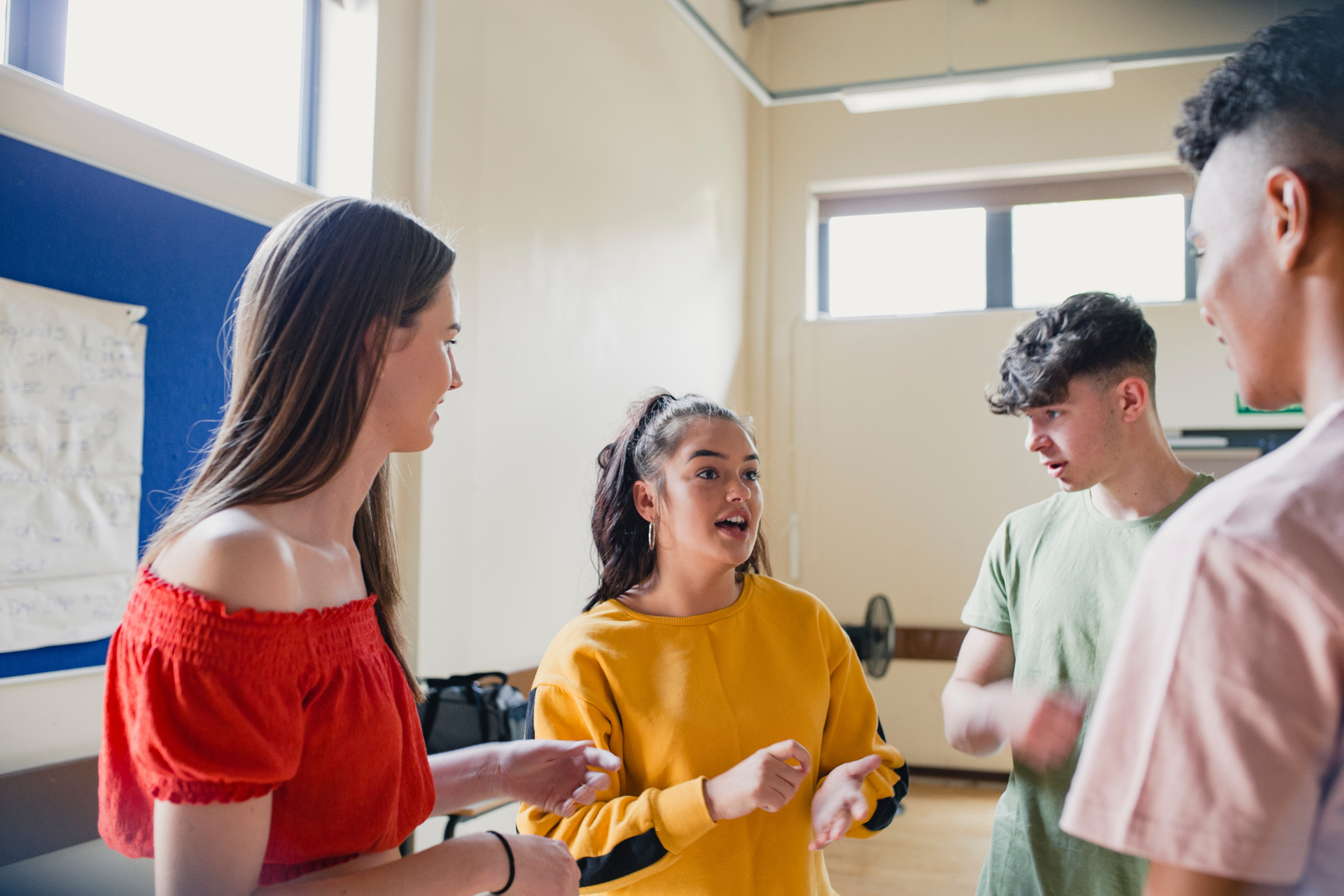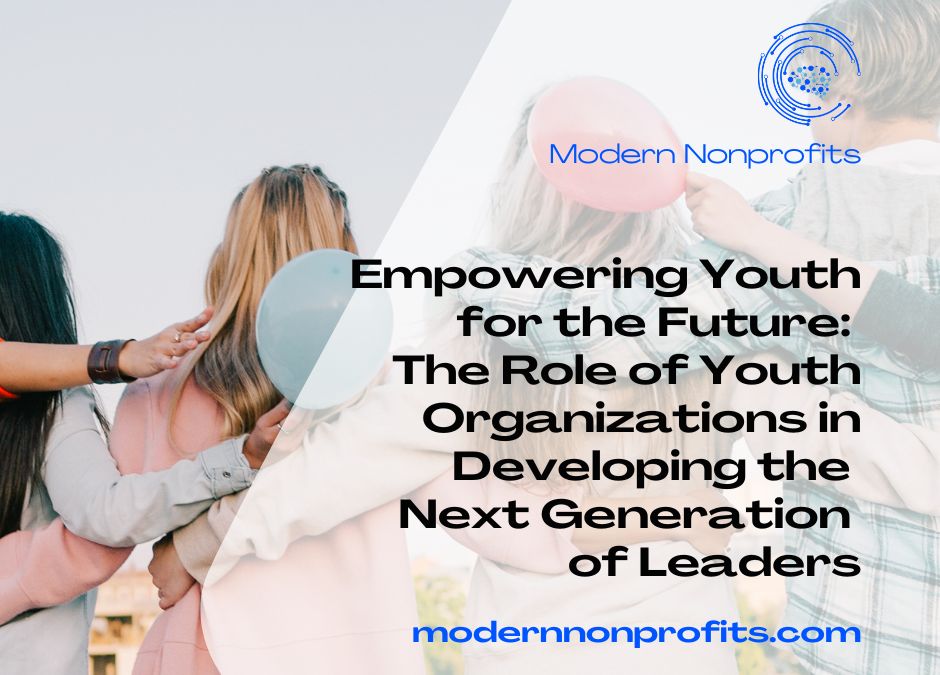In today’s rapidly changing world, empowering youth to become future leaders is crucial for the growth and development of our society. As the next generation of leaders, young people have the potential to make a positive impact on the world and drive social change. However, many young people face barriers to leadership, including lack of opportunities, mentorship, and resources. To address these challenges, it is essential to provide young people with the necessary support, education, and opportunities to develop their leadership skills and become effective leaders. In this article, we will explore practical ways to empower youth to become future leaders, including the role of youth organizations and European programmes in facilitating youth projects. By investing in the development of young people, we can create a more inclusive and prosperous society for all.

Leadership, Empowerment, and Facilitation are three essential elements for the development and growth of young people. In today’s fast-paced world, young people are the future leaders and decision-makers. Therefore, it is crucial to equip them with the necessary skills and knowledge to lead and make informed decisions.
Leadership is an important trait that every youth should possess. It is the ability to influence, motivate, and guide others towards achieving a common goal. Leadership skills can be developed through training, mentoring, and hands-on experience. As a leader, it is important to lead by example, set clear goals, and communicate effectively. It is also important to be empathetic, respectful, and open-minded. Effective leaders are those who can inspire and bring out the best in others.
Empowerment is another critical element in youth development. Empowerment means providing young people with the necessary tools, resources, and support to take charge of their lives and make decisions that affect their future positively. Empowerment also means giving young people a voice and involving them in decision-making processes. This can be achieved by providing training and education, creating safe spaces for dialogue and discussion, and providing opportunities for young people to take on leadership roles.

Facilitation is the third essential element in youth development. Facilitation means providing guidance and support to young people to help them achieve their goals. Facilitation involves creating an environment that fosters learning, growth, and development. It is important to create a safe and supportive environment where young people can express their opinions and ideas freely. Facilitation also involves providing feedback, encouragement, and support.
In conclusion, Leadership, Empowerment, and Facilitation are essential elements in the development and growth of young people. These three elements help young people develop the necessary skills, knowledge, and confidence to become effective leaders and decision-makers. By investing in youth development, we are investing in the future of our society. Therefore, it is important for parents, educators, policymakers, and community leaders to prioritize youth development and provide the necessary resources, support, and opportunities for young people to thrive.

How to Empower Youth to Become Future Leaders?
Empowering youth to become future leaders is essential for the growth and development of our society. Here are some practical ways to empower youth to become future leaders:
- Provide Opportunities for Leadership Roles: Providing young people with opportunities to lead and take on responsibilities is one of the most effective ways to empower them. This can be done through volunteering, participating in clubs or organizations, or starting their own initiatives.
- Mentorship: Mentors can provide guidance, support, and advice to young people as they navigate their way towards leadership roles. Mentors can also serve as role models and provide opportunities for networking and skill-building.
- Education and Training: Providing education and training on leadership skills and practices can help young people develop the necessary skills and knowledge to become effective leaders. This can include training on communication, decision-making, problem-solving, and critical thinking.

- Encourage Self-Expression: Encouraging young people to express their opinions, ideas, and beliefs is crucial for their development as future leaders. Providing safe spaces for dialogue and discussion can help young people develop their confidence and communication skills.
- Foster a Sense of Community: Creating a sense of community among young people can help foster a sense of belonging and connection. This can be achieved through community service projects, team-building activities, and social events.
- Recognize Achievements: Recognizing and celebrating young people’s achievements can help boost their self-esteem and motivation. This can be done through awards, certificates, and public recognition.
In summary, empowering youth to become future leaders requires a multi-faceted approach that includes mentorship, education, training, community-building, and recognition of achievements. By investing in the development of young people, we are investing in the future of our society.

Youth Organizations in Support of Youth Empowerment
- Provide Opportunities for Leadership Roles: Youth organizations can provide young people with opportunities to take on leadership roles within the organization. This can help young people develop leadership skills, gain hands-on experience, and build their confidence.
- Foster a Sense of Community: Youth organizations can create a sense of community and belonging among young people. This can be done through team-building activities, social events, and community service projects.
- Provide Education and Training: Youth organizations can provide education and training on leadership skills and practices. This can include workshops, seminars, and training programs on communication, decision-making, problem-solving, and critical thinking.

- Offer Mentorship: Youth organizations can provide mentorship programs that match young people with experienced leaders who can provide guidance, support, and advice.
- Encourage Self-Expression: Youth organizations can provide safe spaces for young people to express their opinions, ideas, and beliefs. This can help young people develop their communication skills and confidence.
- Advocacy and Activism: Youth organizations can encourage young people to become advocates and activists on issues that they care about. This can help young people develop their leadership skills and gain practical experience in creating social change.
In summary, youth organizations can provide a range of opportunities and support systems that can help young people develop the necessary skills and knowledge to become effective leaders. By investing in youth organizations, we can invest in the future of our society and create a generation of young leaders who are equipped to make a positive impact on the world.

European Programmes that Support Youth Projects
- Erasmus+: This is the EU’s flagship programme for education, training, youth, and sport. Erasmus+ provides funding for youth projects, including youth exchanges, volunteering projects, and training courses.
- European Solidarity Corps: This programme provides opportunities for young people to volunteer or work on projects that benefit communities across Europe. The programme supports a wide range of projects, including environmental conservation, social inclusion, and cultural heritage.
- European Youth Foundation: This is a fund that provides financial support for youth-led projects that promote human rights, democracy, and cultural diversity in Europe. The foundation supports projects that involve young people from different countries and encourage their active participation in society.
- Horizon Europe: This is the EU’s research and innovation programme, which supports research projects that address societal challenges, including those related to youth development.
In summary, there are several European programmes that can be used to facilitate youth projects, including Erasmus+, European Solidarity Corps, European Youth Foundation, and Horizon Europe. These programmes provide funding and support for a wide range of youth projects, including youth exchanges, volunteering projects, and research initiatives.

Conclusion
In conclusion, empowering youth to become future leaders is crucial for the growth and development of our society. By providing young people with the necessary support, education, and opportunities, we can help them develop their leadership skills and become effective leaders. Youth organizations play a critical role in this process by fostering a sense of community, providing education and training, and encouraging self-expression and advocacy. In addition, European programmes such as Erasmus+, European Solidarity Corps, and Horizon Europe offer funding and support for a wide range of youth projects, including youth exchanges, volunteering projects, and research initiatives. By investing in the development of young people, we can create a more inclusive and prosperous society for all. Let us work together to empower young people to become the future leaders our world needs.



Hey there, Modern Nonprofits team!
I just finished reading your article about the importance of youth organizations in developing the next generation of leaders.
I wholeheartedly agree with your statement that empowering youth is vital for the sustainability and growth of any community. In order to create a better tomorrow, it’s essential to invest in our youth today. Youth organizations offer a supportive and inclusive environment that fosters personal and professional growth, allowing young people to develop valuable skills, build meaningful connections, and gain confidence in themselves and their abilities. By providing young people with opportunities to engage in leadership, volunteerism, and community service, youth organizations help develop the next generation of responsible and proactive citizens.
One aspect that particularly stood out to me in your article was the importance of collaboration between youth organizations and other community organizations. By working together, these organizations can share resources, knowledge, and expertise, creating a more cohesive and supportive community for young people. It’s heartening to see that so many youth organizations are committed to collaboration and partnership, as it shows a dedication to serving the greater good and creating a brighter future for all.
Overall, I want to thank you for highlighting the critical role that youth organizations play in shaping the future, and for reminding us all of the importance of investing in our youth. Keep up the great work, and I look forward to reading more from Modern Nonprofits in the future!
I appreciate your kind and motivating feedback. It’s wonderful to learn that you value cooperation between youth organizations and other associations. Certainly, by working together, a community can become more encouraging and united, which is advantageous for all of its members, especially young people. It is encouraging to see that so many organizations are committed to working together to bring about meaningful and long-lasting change in our communities. I appreciate you reading and responding to my article. I am passionate to highlighting the vital work done by nonprofits and other youth organizations, and I aim to continue inspiring.
Thank you for sharing this informative and insightful article on the importance of empowering youth for the future. The points made about leadership, empowerment, and facilitation are crucial elements for the development and growth of young people, and the practical ways to empower youth to become future leaders are helpful for parents, educators, policymakers, and community leaders.
It is great to see the focus on providing opportunities for leadership roles, mentorship, education and training, self-expression, fostering a sense of community, and recognizing achievements. Youth organizations also play a vital role in empowering young people, and the suggestions for how they can help in this process are excellent. Overall, this article is a great resource for anyone interested in supporting youth development and investing in the future of our society.
All the best,
Fred.
Fred, I appreciate your thoughtful comment. I’m happy to hear that you found the article thought-provoking and educational. The future of our society depends on empowering youth, therefore it’s critical that parents, educators, policymakers, and community leaders collaborate to give youngsters the assistance they need to grow as leaders and realize their full potential. I concur that crucial strategies for empowering youngsters include giving them the chance to take on leadership roles, mentorship, education and training, and self-expression. Youth organizations can be instrumental in this process by giving young people a secure environment in which to develop.